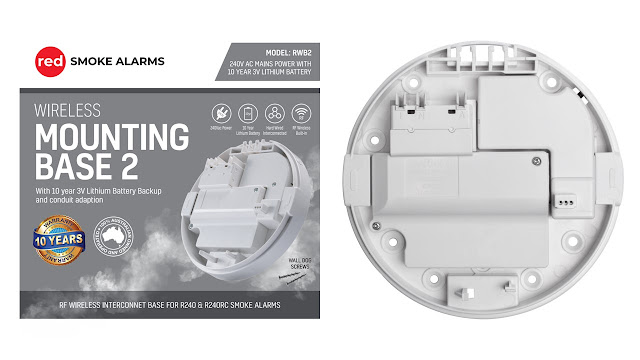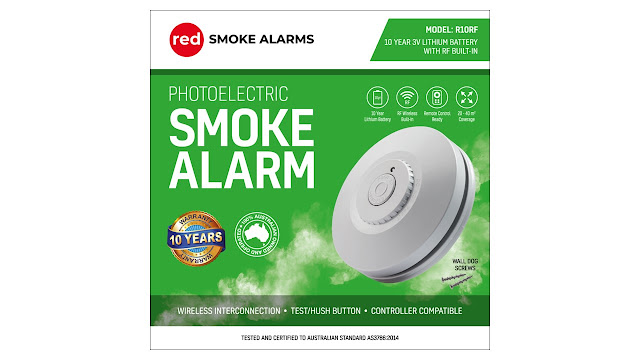Ultimate Home Safety: Discover Why Interconnected Smoke Alarms Are Queensland's Lifesaving Secret Weapon!
The pursuit of creating a safer Queensland community extends beyond safety at our beaches or safety on our roads, Queenslanders have embraced the implementation of interconnected smoke alarms as a crucial safety measure in their homes as well. This progressive initiative goes beyond the traditional standalone alarms, offering several benefits that contribute to a more robust and effective home fire safety system.
One of the primary advantages of interconnected smoke alarms is their ability to communicate with each other. When one alarm detects smoke, it sets off a chain reaction, activating all interconnected fire alarms throughout the property. This rapid dissemination of alerts ensures that occupants are promptly notified, regardless of their location within the premises. In a state as vast and diverse as Queensland, where homes come in various sizes and layouts (from traditional Queenslanders to modern high rise apartments), this interconnectedness is pivotal in providing comprehensive coverage.
Queensland's commitment to interconnected smoke alarms is underscored by the legislative changes that mandate their installation. Since January 1, 2017, all new and substantially renovated homes must adhere to the interconnected smoke alarm requirement, with a phased rollout for existing dwellings. This legislative push reflects a proactive approach to fire safety, aiming to reduce the risk of fire-related tragedies and enhance the overall resilience of communities. By 1st January 2027 interconnected smoke alarms will be required by law in ALL Queensland dwellings.
Interconnected smoke alarms contribute to early detection, a crucial factor in minimizing the devastating effects of fires. By sounding the alarm throughout the entire home, occupants have more time to evacuate safely, and emergency services can be alerted promptly. This swift response is particularly vital in Queensland's climate, where hot and dry conditions can sometimes elevate the risk of fires.
Modern interconnected smoke alarm systems are also often supplied with a hand-held remote control device. The remote control has two main purposes - to test the alarms periodically and to also silence the alarms quickly (if there is a false nuisance alarm). Having the remote control eliminates having to run through multiple rooms looking for a fire, or attempting to silence the alarm group by pressing the button on each smoke alarm individually.
In conclusion, the benefits of interconnected smoke alarms in Queensland extend far beyond mere compliance with regulations. These alarms offer a comprehensive and interconnected safety net, fostering a proactive approach to fire prevention and enhancing the overall resilience of homes and communities. As the state continues to prioritize safety, interconnected smoke alarms stand as a testament to Queensland's commitment to safeguarding its residents from the devastating impact of fires. From Coolangatta in the south to Cooktown in the north, we salute you Queensland - well done!
Questions? We love talking smoke alarms! Feel free to reach out to us below;
Photoelectric Smoke Alarms Australia
www.photoelectricsmokealarms.com.au
PH: 0478 596 402



Comments
Post a Comment